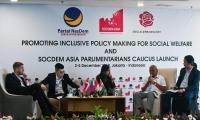Malaysia
New government brings hope for democracy and political stability in multicultural Malaysia
The Southeast Asian country of Malaysia is a federal parliamentary constitutional elected monarchy. The Yang di-Pertuan Agong, who serves as the country's head of state, is chosen from among nine royal families for a five-year term. Despite having limited formal authority, the monarch often has a significant impact on Malysian politics. Malaysia was ruled by the Baraysian National Alliance (BN) from 1957 to 2018, where it was defeated in an election by a broad political coalition of opposition parties. Elections were frequently held during the BN regime, although they were manipulated strongly in BN's favour and there were laws restricting the activities of opposition parties. Despite being a major upset, the 2018 election failed to bring about the significant renewal of the political order that many Malaysians had hoped for. Instead, many government coalitions have formed and broken down since the 2018 election, creating a very unstable political environment.
Snap elections were held in 2022 and were called as a result of Malaysia's political unrest. The elections resulted in a hung government. The Yang di-Pertuan Agong intervened and declared his support for a broad unity government after a period of difficult negotiations. After this, the three political coalitions PH, BN, and GPS agreed to enter government, together they hold a super majority in parliament.
Population: 33,200,000
Liberal Democracy Index: 0.3*
[LDI encaptures both electoral and liberal aspects of democracy]
Proportions of Seats held by Women in Parlament: 13.5%**
Proportions of Seats held by Youth under 30 in Parlament: 0.9%**
*V-Dem Institute
**IPU.org


